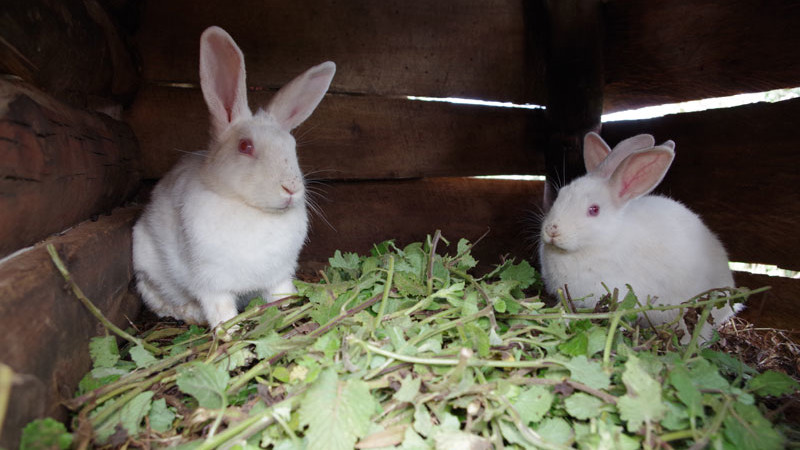

Every morning Jackie Mutesi had to take the last step out of her house, her heart ached as she heard her children cry.
She was a new mother and the children needed her attention. This left her perplexed, unsure what she could do in order to earn a source of livelihood without her family suffering from her absence. At the time, she had a job at one of the corporate companies.
Olive branch
One day a friend gave her two pets. They were rabbits. Her children were excited by the small, playful mammals. Her mind started opening up to ideas.“Someone gave me two rabbits in 2005. One was male and the other female. At one point, the female got pregnant. It gave birth to six kittens. With the increased number, I had to build a cage because they used to run in the compound and sleep in the kitchen,” she explains.
One month down the road, the doe gave birth to another nine and in another month, another four. She knew it was time to professionalise the hobby.
Turning point
She called in a professional in the agriculture sector, Sharon Ahebwa. She had expertise knowledge about rabbit rearing after extensively reading online about rabbit rearing.
The urgency to call in Ahebwa was after putting the rabbits in the cages she had built.
She was clueless about feeding, treatment and did not know what to do with them. She turned to Google for some information.
The information was good but she needed training to concretise on the practicals of rearing the rabbits.
Training
She recalls meeting one Mark, who is into rabbit rearing. He had organised a rabbit training session.
She recounts, “The session had people coming from Kenya and Tanzania. I learnt about feeding, cleanliness and more. Good enough, I had not lost any of my rabbits. When I went back home, I put up eight cages. The first cage cost me around Shs350, 000. It was made out of wood and a small iron sheet. This was to shield the rabbits from the rain and sunshine.”
By then, she had not learnt about breeding and how to get quality rabbits because the doe was producing and that is all she wanted.
Proper methods
With time, however, she realised that if she spaced the birth rate for the does, it would give them time to rest and also time for the kittens to bond with their mothers.
With this practice, she would get good breeds. The rabbits put on weight and the number at every birth increased. She knew how to care for them. She had created a hygienic environment for them.
Feeding
“Rabbits do not need a lot of feeding. You can feed them on common green grass such as black jack and banana peelings. However, you need to treat the grasses. Wash the vines in salt water to rid it of infections. Otherwise, the rabbits will develop diarrhoea and fall sick,” says the rabbit farmer further advises. She also feeds the rabbits on pellets, wheat and maize brans.
Rabbits with the same genes tend to die early therefore Mutesi advises against inbreeding or incest.
Rabbits need vitamins, boosters and antibiotics “It can survive outside without any treatment. Once you cage them, all they get is what you feed them. Some foods are not good to be served to rabbits every day, for example the wild grasses. If you do not give them multivitamins, they will become weak,” she adds.
Benefits
Mutesi attests rabbit urine is good manure for vegetable gardens which she runs on the side. Rabbit droppings when dried are good food for fish. She currently rears chinchilla, New Zealand white and cross breeds. New Zealand white in Uganda, fetches her Shs40, 000 for each. Her rabbits give birth after every two months. She has about 100 rabbits on her farm.
Next Reading
Learn more about Boer Goats
There are many goat breeds in Uganda including Mubende, Savannah, Boer, Saanen and Toggenburg in […]
Previous Reading
Factors affecting Colostrum production
Colostrum has an important function providing the piglet with a maternally derived, passive immunity after […]
 Contact Jaguza Support
Contact Jaguza Support